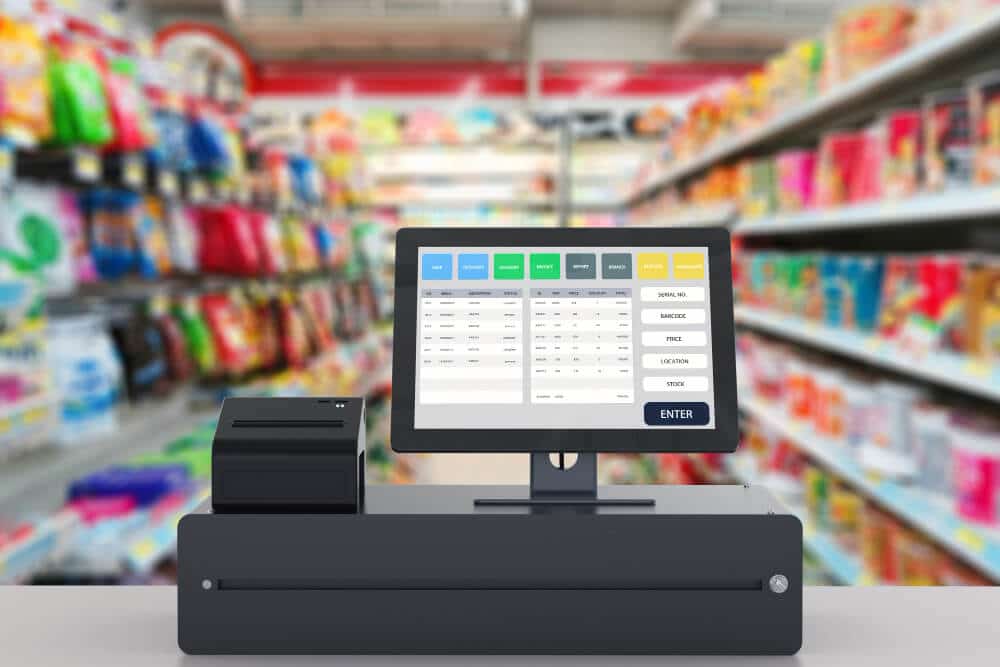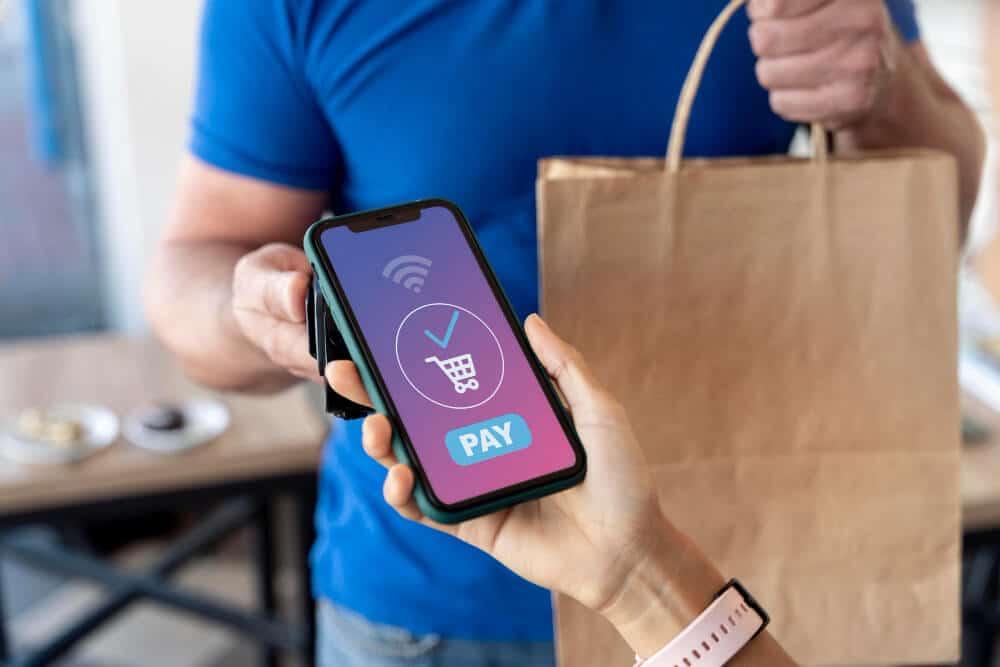Choosing the right B2B payment processor can be a daunting task. There are so many options available, and each one has its own set of features and benefits.
Having a B2B payment processor is as important as having a merchant account because it allows businesses to accept credit card payments from their customers.
And these days, having multiple payment options is very important. Because most customers don’t carry cash with them, and even if they do, they may not have enough to cover the purchase.
So, giving them the option to pay with a credit or debit card is always a good idea.
But with so many options available in the market, how do you know which one is the right fit for your business?
Well, there are a few things you need to consider before choosing a B2B payment processor. In this guide, we’ll cover everything you need to know about B2B payment processors, so you can make an informed decision.
So if you are in the market looking for the best B2B payment processor, this article is for you!
Read Also: How to Prevent and Avoid Chargebacks
Table Of Content
What are B2B Payments?
How do B2B payment systems work?
Popular B2B Payment Methods
Things to Consider When Searching for a B2B Payment Provider
Why Use B2B Payment Providers?What are the key features of the B2B payment system?
What are B2B Payments?
B2B refers to business-to-business payments. So, when one business makes a payment to another business, it’s considered a B2B payment.
This can be for goods or services that have been purchased or for other purposes such as rent, utilities, etc.
The only difference between B2C and B2B payments is that in B2B payments, the transactions are usually much larger in value. And because of this, businesses need to be extra careful when choosing a B2B payment processor.
They need to make sure that the processor can handle large transactions without any issues. Otherwise, it could lead to delays in payments, which can be very costly for businesses. Or in the worst cases, it could ruin the relationships between the businesses.
The best thing is that there are many reliable and reputed B2B payment processors available in the market. So, businesses have plenty of options to choose from, however, it’s still very important to do your research before choosing one.

How do B2B payment systems work?
To better understand this, you have to understand the typical B2B payment process.
The B2B payment process usually goes like this:
1) A customer places an order with a business.
2) The business sends an invoice to the customer detailing the purchase.
3) The customer pays the invoiced amount to the business. This can be done via check, wire transfer, or credit card.
4) The business ships the goods or delivers the services to the customer.
5) Once the customer receives the goods or services, they have a certain period to inspect them and make sure they are as expected.
6) If everything is ok, the customer will approve the invoice, and the transaction is complete.
7) If there are any issues with the goods or services, the customer will notify the business, and they will try to resolve the issue.
As you can see, the B2B payment process is very similar to the B2C (business-to-consumer) payment process.
If you are a B2B business, you need to choose a payment processor that can handle these types of transactions. Because you are most likely to deal with large invoices, you will need a processor that can handle high-volume payments.
And not to mention, you will need a processor that can handle international payments if you plan on doing business with customers outside of your country.

Popular B2B Payment Methods
So now that we looked into what B2B payments are and how they work, let’s find out some of the popular payment methods used for B2B transactions.
1. Cash payments
The most reliable and common form of B2B payments is still cash. A lot of businesses prefer this method as it eliminates the risks associated with other payment methods like checks and wire transfers.
There are zero chances of fraud with cash payments and businesses can be sure that they will receive the full amount.
In addition, since you will be dealing in person, cash payments also improve communication and understanding between both parties involved in the transaction.
2. Check payments
Another popular B2B payment option is check payments. In general, check payments are less expensive than ACH or wire transfers. However, they can take longer to process and may require special handling.
To process a check payment, you’ll need to deposit the check into your business account and then wait for it to clear. Once the check clears, you’ll have access to the funds.
If you’re working with a client who wants to pay by check, be sure to let them know about the potential delays. You may want to set up a payment plan that allows you to receive partial payments while the check is in transit.
3. Credit card payments
Most businesses these days work on credits rather than cash. Credit cards are some of the most popular B2B payment options as they’re easy to use and offer a quick way to get paid.
There are a few things to keep in mind when accepting credit card payments, though. First, you’ll need to make sure you’re set up with a merchant account that allows you to accept credit card payments.
You’ll also need to be aware of the fees associated with processing credit card payments.

Streamline your business with Octopos– A Complete POS System with Big Boys Tools without the Big Price
It is a lot more than a point of sale. Octopos is easy and intuitive for you and your staff to use. Yet you get all these sophisticated tools to manage inventory, track and engage customers, get meaningful insights into your business, and much more.
4. Wire transfers
The best part of wire transfers is that it’s quick- within 24 hours you can have the money in your account. The downside to a wire transfer is that it typically costs more than other types of payments, around $30 – $50 per transaction.
Wire transfers are also one of the more complicated payment options, so be sure you understand all the fees and requirements before you agree to accept this type of payment.
However, it offers fast and convenient payment for both domestic and international transactions.
5. ACH payments
The Automated Clearing House (ACH) is a computerized funds-transfer system that allows consumers and businesses in the United States to make payments.
ACH payments are typically less expensive than wire transfers and can be processed more quickly. However, they are not as widely used as wire transfers.
To send an ACH payment, you will need the recipient’s bank account number and routing number. These can be found on a check or by contacting the recipient’s bank.
Once you have this information, you can initiate the payment through your bank’s online banking portal or by visiting a branch.
ACH payments can take one to two business days to process.
6. Payment gateways
One of the most reliable and vastly used B2B payment options is Payment Gateways. A Payment Gateway is an e-commerce application service provider that authorizes payments for online retailers, brick-and-mortar stores, and mobiles.
It is software that encrypts sensitive information like credit card details to make sure that the data reaches the intended source without any leak.
Payment gateways are easy to set up and use, all you need is a merchant account and a payment gateway provider. Once you have these, you can start accepting payments on your website or online store.
So these are some of the most popular B2B payment options and you can choose the one that best suits your business needs. There are also other B2B payment methods available, such as:
- PayPal
- Online invoicing
- Payment apps
- Cryptocurrency, etc…
Read: What Is a CVV Number and Why Is It Important to Merchants?

Things to Consider When Searching for a B2B Payment Provider
Here are a couple of things that you might want to consider when you’re searching for a B2B payment provider:
1. Fees
One of the most important things to consider when choosing a B2B payment processor is the fees. Each provider charges different rates, so it’s important to compare the costs before you make a decision.
Be sure to read the fine print and understand all the fees that will be associated with using the service.
2. Ease of use
Dealing with money is a challenge in itself and you don’t want to add another layer of complexity by using a B2B payment processor that’s difficult to use.
Look for a provider that offers a simple and user-friendly platform. This will make it easier for you to manage your finances and avoid any headaches down the road.
3. Safety and security
When you’re dealing with sensitive financial information, it’s important to make sure that the B2B payment processor you choose is safe and secure.
Look for a provider that uses encryption technology to protect your data. This will help to prevent any fraud or theft and give you peace of mind that your information is safe.
4. Customer support
Once in a while, you will run into issues with your B2B payment processor. When this happens, it’s important to have access to customer support that can help you resolve the problem quickly.
Look for a provider that offers 24/7 customer support so you can always get the help you need. Because when it comes to money, you can’t afford to wait.
5. Multiple payment support
To beat your completion and improve customer satisfaction, it is important to offer multiple B2B payment options. This gives your customers the flexibility to choose the payment method that best suits their needs.
Because every customer is different and uses different payment methods, it’s important to choose a B2B payment processor that supports a variety of payments. You don’t want to limit yourself when it comes to payment options.
6. Has options for milestone payments
For larger projects, it is often necessary to make milestone payments. This means you will be paying your freelancers or contractors in installments instead of one lump sum.
Be sure to choose a B2B payment processor that offers this option. This will make it easier to manage your finances and avoid any issues with late or missing payments.

Why Use B2B Payment Providers?
So the main question comes, why do you even need a B2B payment provider? There are multiple reasons why you need to consider using one of these services.
1. More secure transactions
When you use a B2B payment processor, the likelihood of fraudulent transactions is greatly reduced. This is because these providers use multiple layers of security to protect both the buyer and the seller.
This makes it much more difficult for hackers to obtain sensitive information or carry out fraudulent activities.
2. Automation
Making payments and managing invoices can be a time-consuming and tedious task, especially if you’re dealing with a large number of transactions.
B2B payment processors can automate many of these processes, which can free up your time so that you can focus on other areas of your business.
3. Enhanced reporting
Another benefit of using B2B payment processors is that they can provide enhanced reporting features.
This can be extremely helpful in managing your finances and ensuring that all payments are being made on time. You can also use these reports for taxes as well as business audits.
4. Multiple payment options
As we mentioned earlier, having multiple payment options will not only make it easier for your customers to pay, but it can also help you to get paid faster.
B2B payment processors typically offer a wide range of payment options, including credit cards, debit cards, ACH transfers, and even international payments.
Check out the reason for Credit Card Outages
5. Increased customer satisfaction
When your customers can pay the way they want, when they want, it can lead to increased satisfaction. This is because they’re not being restricted by your payment methods or having to wait for a long time to receive their products or services.
And more satisfied customers mean more repeated business and referrals for you.
6. Multiple payment features
Most B2B payment processors offer more than just the ability to process payments. Many of them also provide invoicing, accounting, and even CRM features. This can be extremely helpful in managing your business as a whole.
So you are getting more than just a payment processor, but an all-in-one solution for your business.
7. Easy to trace the payment progress
Many payment providers have the option to track and monitor the progress of payments. This way, you can easily see which payments have been made and which ones are still outstanding.
You will get notified as soon as a payment is processed, which can help you to keep track of your finances and avoid any late payment fees.
What are The Key Features of The B2B Payment System?
Here are some of the key features of the B2B payment system:
1. Multiple payment options
One of the best parts of the B2B payment system is that it offers multiple payment options, such as
- Bank transfers
- Credit/debit cards
- Mobile payments
- Digital wallets
- Cash
- ACH, etc…
This makes it easier for businesses to receive payments from their customers quickly and securely. This not only improves the customer experience but also ensures that businesses can receive payments faster and more reliably.
2. Automated payment processing
The B2B payment system offers automated payment processing, which makes it much easier for businesses to manage their finances.
Instead of manually entering data into the system, businesses can set up automated processes that make payments quickly and accurately. This ensures that the payments are processed quickly, securely, and accurately.
3. Real-time reconciliation features
The B2B payment system offers real-time reconciliation features. This allows businesses to get timely updates on their transactions and reconcile them quickly.
This helps businesses to keep track of their finances efficiently, ensuring that they are running smoothly at all times. This makes the cash flow management process much easier and more efficient.
4. Easy-to-understand interface
If you have staff members who are not tech-savvy, the B2B payment system provides an easy-to-understand interface.
This helps them to quickly understand how the payment system works and makes it easier for them to use the various features of the platform. Just a bit of practice and they should be able to use the system with ease.
5. Advanced security features
Security is an important aspect of any payment system, and the B2B payment system offers advanced security features that ensure that all payments are safe and secure.
The platform uses encryption technology, two-factor authentication, and other measures to make sure that your business’s payments are secure at all times.
6. Easy integration with other services
The B2B payment system can be easily integrated with other services such as accounting, invoicing, or even analytics platforms.
This makes it easy for businesses to get a comprehensive view of their finances and manage them more effectively. This helps businesses to make better decisions and maximize their profits.
7. Credit management tools
The B2B payment system also offers useful credit management tools. This makes it easier for businesses to keep track of their customers’ payments and ensure that they receive the payments on time.
This helps businesses to maintain a healthy cash flow and reduce their risk of bad debts. In addition, these tools also help businesses to make informed decisions about extending credit to customers.
Final Verdict
As you can tell by now having a payment process in your business arsenal is something that can save you a lot of headaches down the road.
You no longer need to worry about missed payments, late fees, or even fraud. All of these risks are greatly reduced when you use a B2B payment processor.
Payment processors come with a complete package that can help you automate your business transactions, provide enhanced reporting, and even offer customer management features.
You may have to pay a couple of bucks more to get all these features but in the long run, it is going to save you a lot of time and money.
However, not all payment processors are created equal. You’ll want to make sure that you choose a provider that offers multiple payment options, as well as features that will be beneficial to your business.
Be sure to do your research and compare different B2B payment providers before making your final decision.
We hope that this guide has helped understand what B2B payment processors are and why you should consider using one for your business.
If you have any questions or would like to share your experience with a particular provider, feel free to leave a comment below! Thanks for reading!

